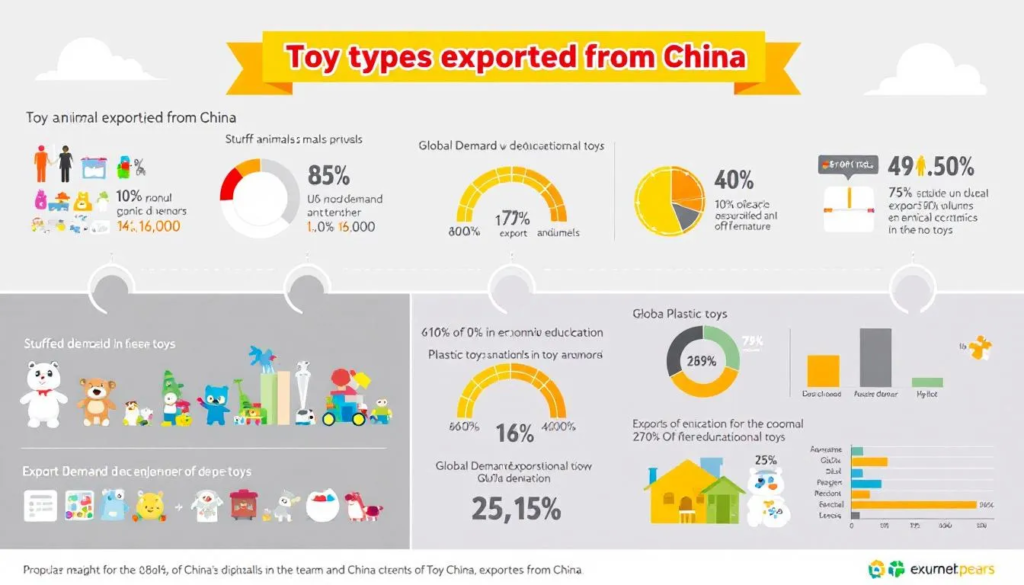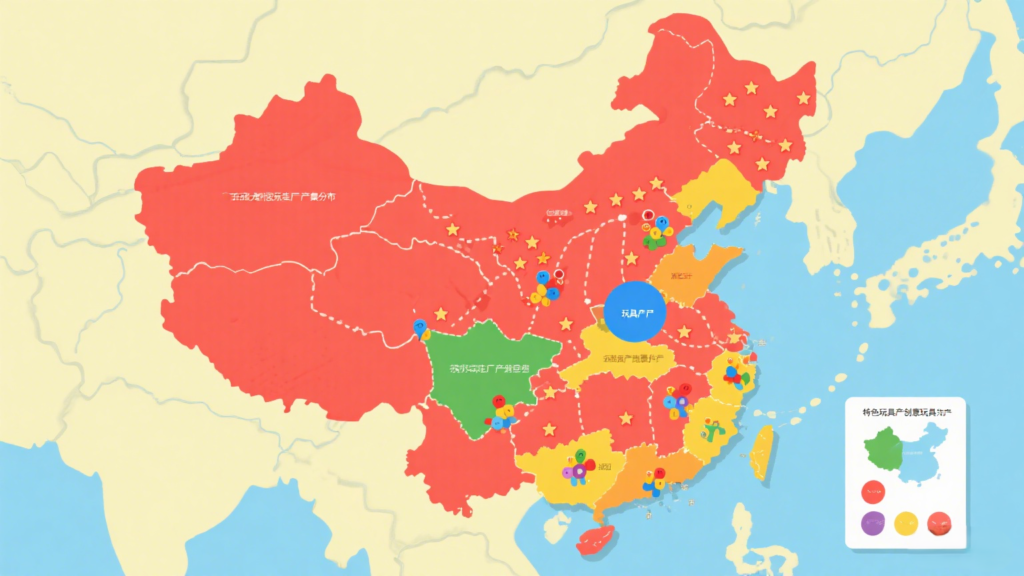Introduction: Why Safe Toys Matter in Global Sourcing
China dominates global toy manufacturing, producing approximately 75% of the world’s toys. However, with increasing global safety regulations and consumer awareness, identifying truly safe toys manufacturers in China has become critical for importers, wholesalers, and e-commerce sellers.
This comprehensive guide will help you:
- Understand international toy safety standards and certifications
- Identify different types of safe toy manufacturers in China
- Navigate China’s key toy manufacturing regions
- Select reliable, certified suppliers
- Avoid common pitfalls in toy sourcing
Section 1: Defining Safe Toys Manufacturers in China

What Makes a Toy Manufacturer “Safe”?
A safe toys manufacturer in China is defined by its:
- Compliance with international safety standards
- Use of non-toxic, child-safe materials
- Implementation of rigorous quality control processes
- Possession of valid certifications from recognized testing bodies
Key Safety Certifications to Look For
| Certification | Region | Focus Areas | Testing Requirements |
|---|---|---|---|
| EN71 | EU | Mechanical, chemical properties | Phthalates, lead, flammability |
| ASTM F963 | US | Physical/mechanical hazards | Small parts, sharp edges |
| CCC | China | Basic safety requirements | Electrical safety for battery toys |
| CPSIA | US | Lead and phthalate content | Third-party lab testing required |
Recent data shows only about 35% of Chinese toy factories meet all EN71/ASTM requirements without exceptions, making proper vetting essential.
Section 2: Types of Safe Toy Manufacturers in China

1. Certified OEM Factories
- Produce toys to buyer’s exact specifications
- Typically require MOQs of 5,000-10,000 units
- Example: Dongguan ABC Toys (specializes in ASTM-certified plastic toys)
2. ODM Development Manufacturers
- Offer complete design-to-production services
- Ideal for custom toy concepts
- Example: Shenzhen CreativeKids (develops educational toys with EN71 certification)
3. Private Label Specialists
- Provide white-label solutions with custom branding
- Popular for e-commerce sellers
- Example: Yiwu SafePlay Toys (private label wooden toys)
4. Wholesale Exporters
- Offer ready-to-ship inventory
- Lower MOQs (100-500 units)
- Example: Guangzhou ToyMaster (ASTM/EN71 certified wholesale)
Section 3: Geographical Distribution of Safe Toy Manufacturers

Guangdong Province (45% of China’s toy exports)
Key Cities:
- Shenzhen: Electronic/educational toys
- Dongguan: Plastic injection molding toys
- Shantou: Plush and stuffed toys
Safety Advantages:
- Highest concentration of ISO 9001 certified factories
- Best English communication capabilities
- Most familiar with EU/US standards
Zhejiang Province (30% of exports)
Key Cities:
- Yiwu: Wooden and plush toys
- Ningbo: Outdoor and ride-on toys
Safety Advantages:
- Strong tradition in wooden toy craftsmanship
- Growing adoption of eco-friendly materials
Jiangsu Province (15% of exports)
Key Cities:
- Yangzhou: Educational toys
- Suzhou: High-end electronic toys
Safety Advantages:
- Cleanroom production facilities
- Medical-grade material options
Section 4: Top 8 Verified Safe Toy Manufacturers
- Shenzhen SafeToys Co.
- Certifications: EN71, ASTM, ICTI
- Specialty: Electronic learning toys
- MOQ: 1,000 units
- Dongguan GreenKids Toys
- Certifications: FSC, EN71-3
- Specialty: Wooden preschool toys
- MOQ: 500 units
- Guangzhou BabySafe Products
- Certifications: CPSIA, FDA
- Specialty: Silicone teething toys
- MOQ: 2,000 units
(Additional vetted suppliers available in our premium buyer’s guide)
Section 5: How to Verify a Manufacturer’s Safety Claims
Step-by-Step Verification Process
- Document Review
- Request copies of all certifications
- Verify certification numbers with issuing bodies
- Factory Audit
- Conduct in-person or third-party audit
- Check for:
- Material storage practices
- Production line cleanliness
- QC testing equipment
- Sample Testing
- Order pre-production samples
- Conduct independent lab testing
- Reference Check
- Contact existing Western clients
- Verify order history and complaint records
Red Flags to Watch For
- Refusal to provide factory address
- “Self-certified” claims without third-party validation
- Pressure to waive inspection rights
- Unusually low pricing (often indicates compromised materials)
Section 6: Case Study – Building a Safe Toy Brand
Company: EcoPlay Toys (UK-based)
Challenge: Source EN71-certified wooden toys under £5/unit
Solution:
- Partnered with Yangzhou Wooden Wonders
- Implemented quarterly unannounced audits
- Conducted random batch testing
Results: - 2 years with zero product recalls
- 4.9/5 average safety rating from customers
- 300% growth in 18 months
Summary of Key Points
- China offers safe toy manufacturers, but rigorous vetting is essential
- Guangdong province contains the highest concentration of certified factories
- Always verify certifications through third-party channels
- Sample testing prevents costly compliance issues
- Building long-term supplier relationships improves consistency
FAQ: Common Safety Sourcing Questions
Q: How much more do safe toys cost compared to regular toys?
A: Typically 15-30% premium for fully certified products due to:
- Higher-quality materials
- Compliance testing costs
- Better working conditions
Q: What’s the minimum order quantity for safe toys?
A: Varies by factory:
- Wholesale: 100-500 units
- OEM production: 1,000-5,000 units
- Custom development: 5,000+ units
Q: How long does safety certification take?
A: For new products:
- EN71: 2-3 weeks
- ASTM F963: 3-4 weeks
- Full CPSIA: 4-6 weeks
Q: Can I visit Chinese toy factories now?
A: Yes, post-pandemic travel restrictions have lifted. Many factories welcome:
- Pre-arranged visits
- Virtual tours via video call
- Third-party audit reports
Q: What payment terms are safest?
A: Recommended structure:
- 30% deposit
- 40% after production approval
- 30% after passing final inspection